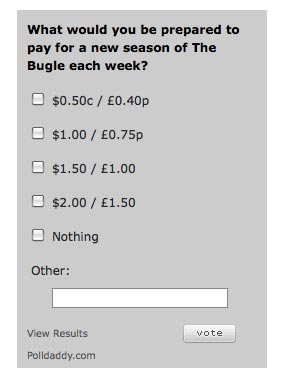It’s now four years – give or take a few weeks – since broadband Britain reached its tipping point.
Halfway through 2005 there were finally more homes connected to the internet via high speed broadband than via achingly slow dial-up. Video on the web suddenly made a lot more sense.
And given that we’re still in the early stages of this particular media evolution, it’s not surprising that we are are still learning.
Here are five such moments from the last seven days:
1. If you build it they will come…
…provided you build something elegant and easy to use. And then market it like crazy.
This was the week that we learned how the hugely successful BBC iPlayer has overtaken MySpace to become the 20th most visited website in the UK . The iPlayer is now comfortably the second most popular video site even if its 13 per cent share is still dwarfed by YouTube’s 65 per cent.
If you want more evidence of success just look at the BBC’s terrestrial rivals. ITV, Five and even Channel 4 – which had a year’s head start over the BBC – are now aping the look, feel and functionality of the corporation’s efforts. No hefty applets to download – just click and play.
Of course, this model – a different player for each network – will look anachronistic within a few years. Maybe less. Hulu arrives on these shores soon.
2. Don’t do video unless you’re adding value
If you are going to put moving pictures on your newspaper website it’s a good idea to ask why? And the answer should be that it adds something to your storytelling.
Last week the Independent completed a deal that sees the Press Association providing more than 100 90-second clips a week, each focusing on a single news item.
Nothing wrong with the quality or content of the video that the Indy is getting, but where’s the added value? Unless the video has some killer footage or a must-see interview, why would a reader of a 500-word news article click play? I’m not sure they would.
As someone eloquently put it on my blog:
If it’s visual, it needs pictures and maybe video. If it’s verbal, sound will do. For everything else, words are cheaper for the producer and quicker for the consumer.
3. You can’t control the message
Singer Chris Brown chose YouTube as the medium to deliver his first public pronouncements following February’s assault on his now ex-girlfriend Rihanna.
He plumped for the video-sharing site rather than a TV or newspaper interview presumably so he could control the message – no out-of-context editing of his words and no awkward follow-up questions.
To some extent he got his wish. Within 24 hours of posting his 120-second, unmediated mea culpa, it had been viewed nearly half-a-million times.
More significantly, however, the video had received over 12,000 comments and most were hostile.
4. Brands love YouTube
In an oddly defensive post on its YouTube Biz Blog, the people behind Google’s file-sharing site set about busting what it claims are five popular myths.
Putting ‘Myth 4’ to rest – namely that ‘Advertisers are afraid of YouTube’ – the post asserted:
Over 70 per cent of Ad Age Top 100 marketers ran campaigns on YouTube in 2008. They’re buying our homepage, Promoted Videos, overlays, and in-stream ads. Many are organizing contests that encourage the uploading of user videos to their brand channels, or running advertising exclusively on popular user partner content.
We wait, breathlessly, for a follow-up post so we can discover how many of these elite brands made a return on their YouTube investment.
5. Death becomes you
Nearly a month after his passing, Michael Jackson’s life is still being celebrated online. Eight out of this week’s viral video top 20 are either Jackson originals or owe their inspiration to the singer.
A case of the long tail occupying the head. For a few weeks at least.
Jon Bernstein is former multimedia editor of Channel 4 News. This is part of a series of regular columns for Journalism.co.uk. You can read his personal blog at this link.
